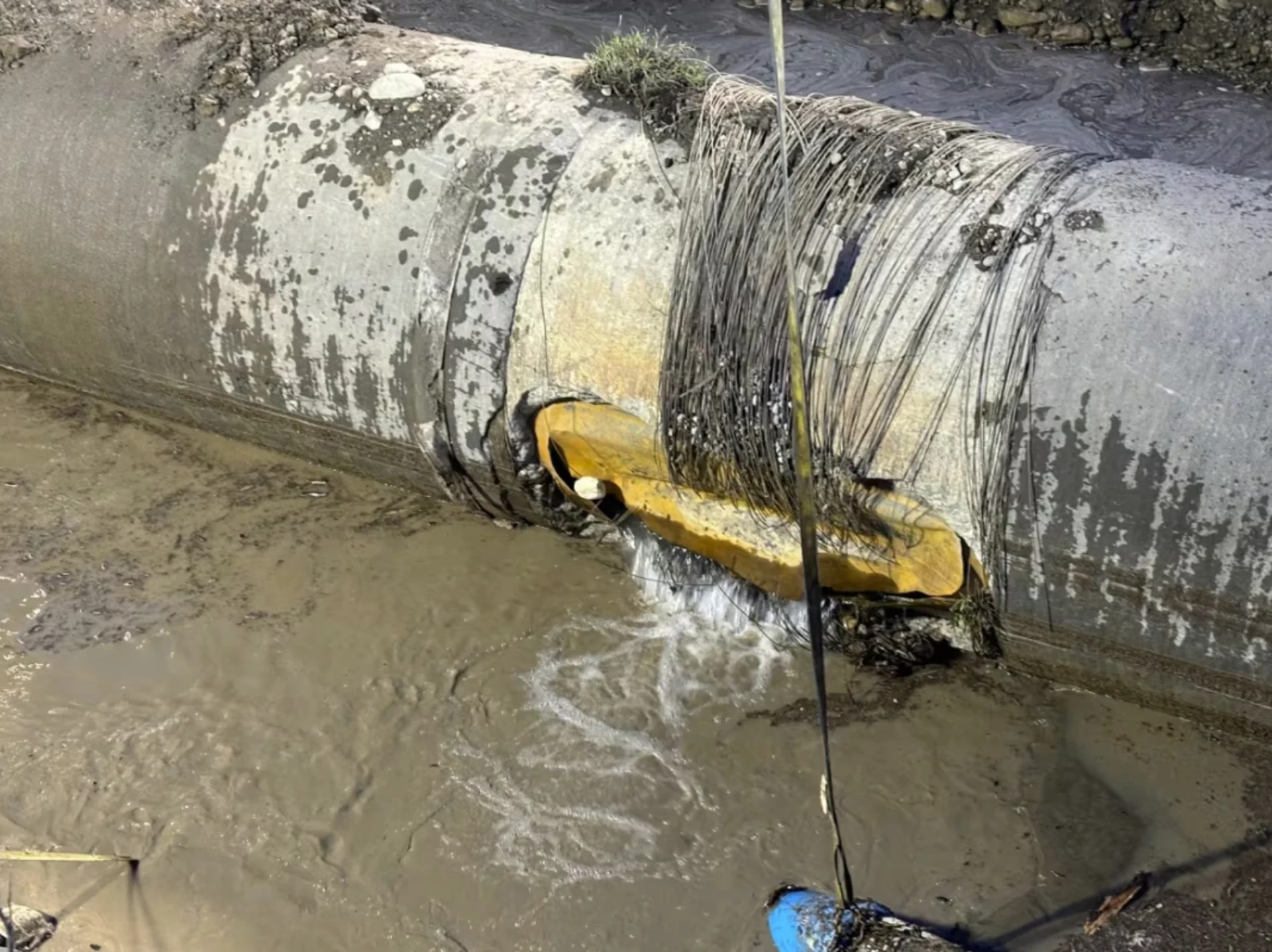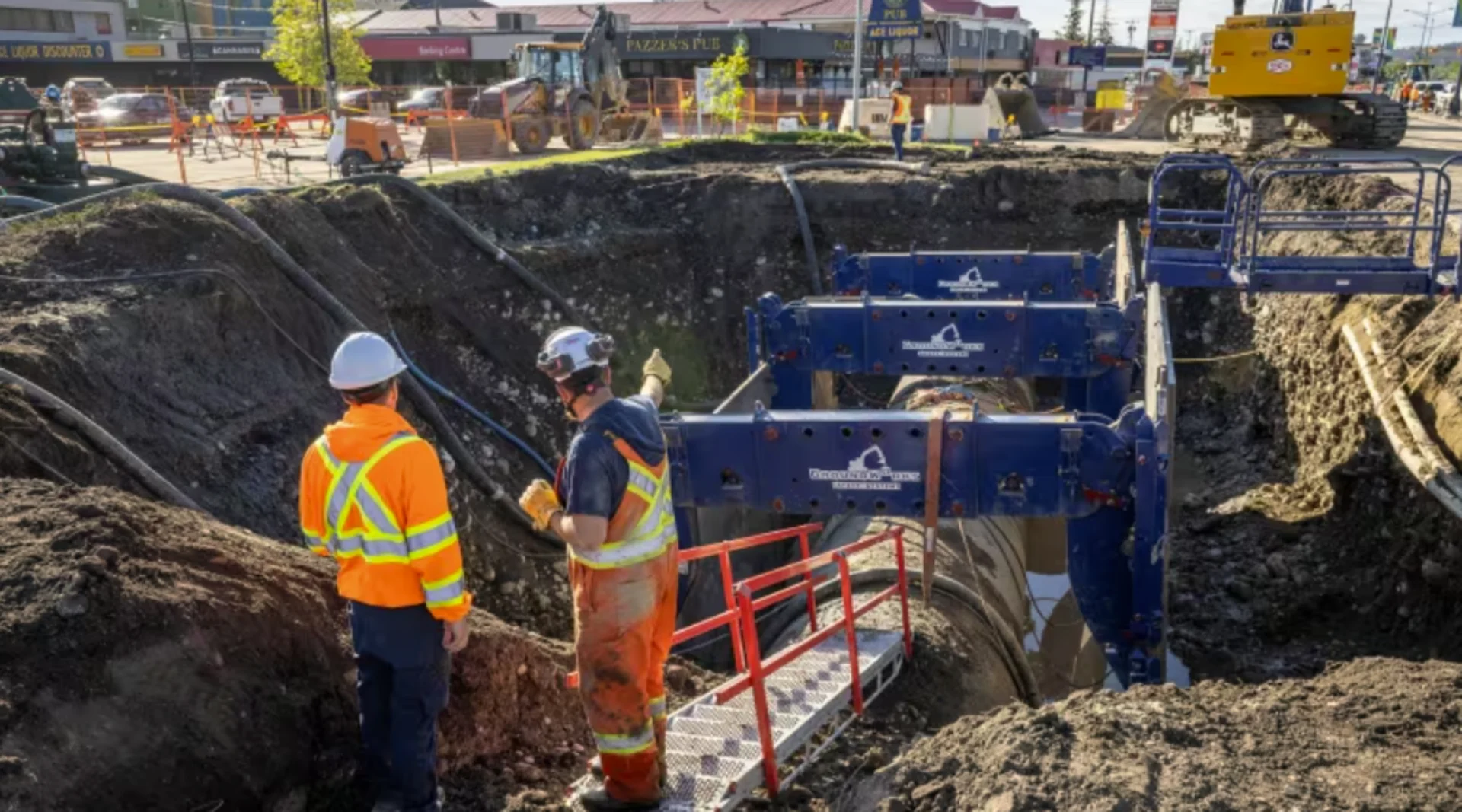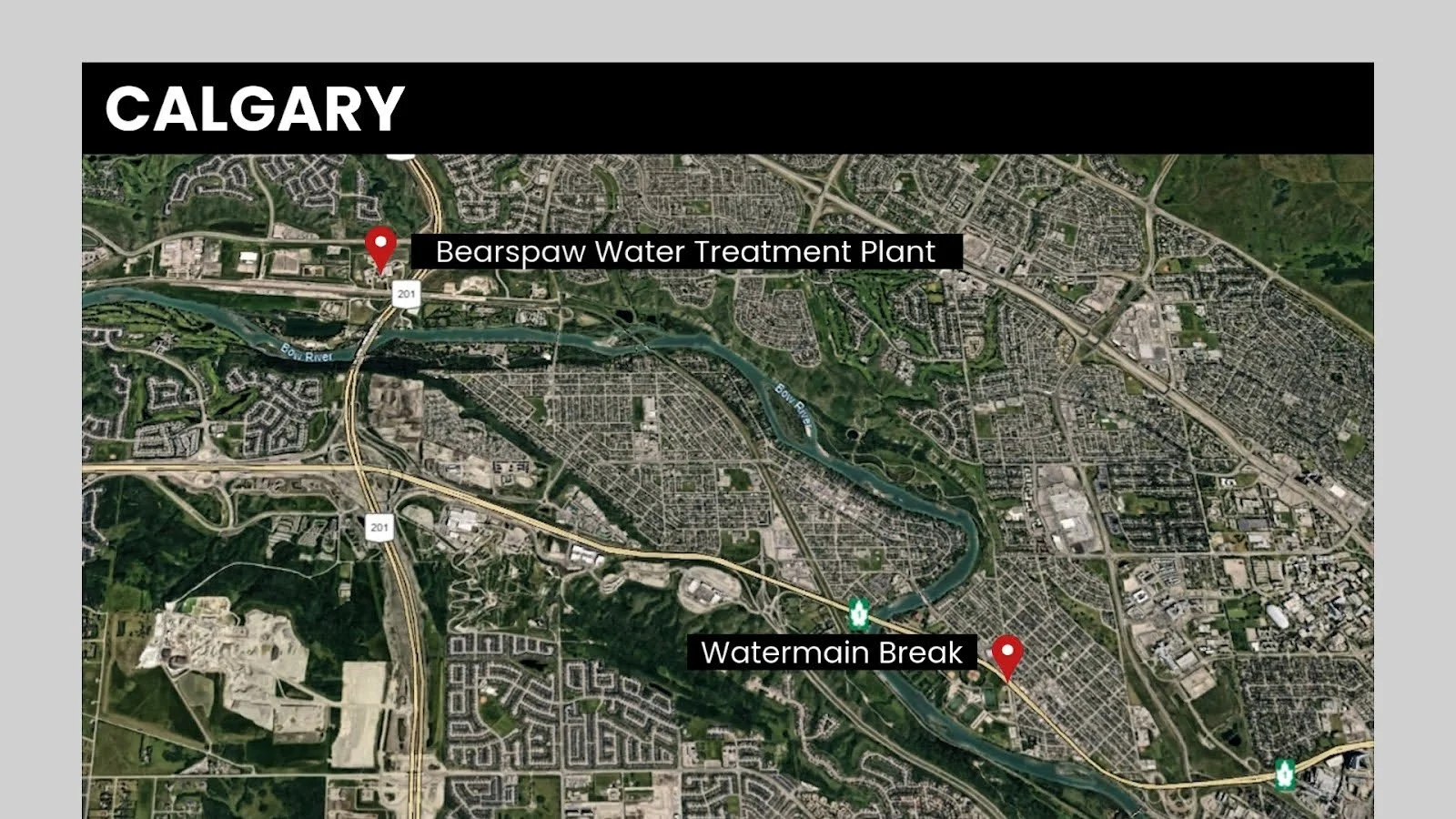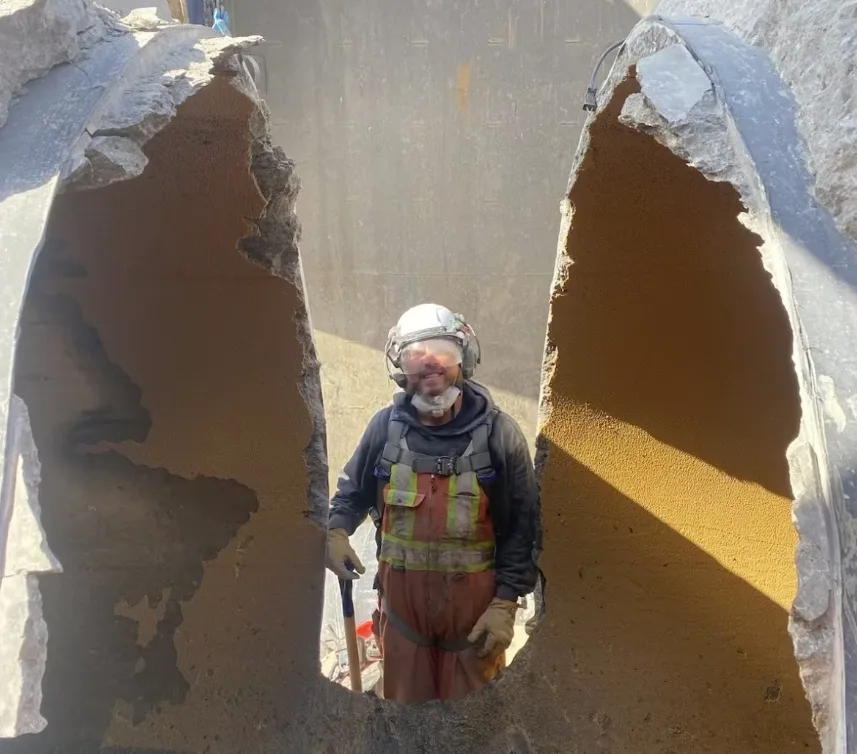
Calgary's water supply still at risk as crews continue water main repairs
Repairs continued Monday on a water main break in northwest Calgary that is still threatening the city's water supply and has triggered outdoor water restrictions.
But it will still take days to fix the 50-year-old piece of infrastructure that supplies approximately 60 per cent of the city — and the risk of running out of water remains a real threat, according to Calgary Mayor Jyoti Gondek.
"It may be a situation where you turn on the tap and nothing comes out," she said Monday on CBC's Calgary Eyeopener.
"As you draw water down on the reservoirs that are in your community, if we can't get them filled up as quickly as you are using the water, you may run out of water."
Crews have yet to identify what went wrong last Wednesday that caused the main to fail, but maintenance work had been done earlier this year.
DON'T MISS: Drought over for parts of the Prairies following May showers
The pipe, installed in 1975, is at the halfway-point of its 100-year lifecycle. The work completed in April involved putting in new technology to identify any further repairs that would need to be done.
More maintenance work was already scheduled for the fall prior to the break.
"The good news out of all of this, because the maintenance is scheduled, we have the parts and the equipment to do the repair," Gondek said.

The City of Calgary says crews reached the damaged section of the feeder water main on Friday and have begun clearing water, dirt and debris to assess the site of the leak. (Fritzology Inc./City of Calgary)
In a press conference on Sunday, Nancy Mackay, the city's water services director, said further assessment of the pipe's condition needs to be completed before they can provide Calgarians with an updated timeline.
The Bearspaw south water main, which is 11 kilometres long and as wide as two metres in parts, suffered a break that left hundreds of homes and businesses in the city's northwest without water and forced the closure of several roads and intersections, including 16th Avenue — part of the Trans-Canada Highway — in both directions."
Officials urge continued conservation efforts
The Stage 4 water restrictions put in place following the break remain in effect and the city continues to maintain a mandatory outdoor watering ban. Officials are also asking Calgarians to limit their non-essential water use by taking these additional actions:
Limit showers and keep baths shallow.
Delay using appliances that use water, such as dishwashers and washing machines.
Turn off humidifiers and ice machines.
Turn off water taps when not in use.
Reduce water use in any way that can be done safely.
In an update on Monday morning, Gondek said the efforts to cut water usage are making a difference, but she stressed they need to continue.
She suggested flushing a toilet fewer times a day, limiting showers to three minutes and doing laundry and dishes only with full loads would made a difference.

An early estimate of the amount of water used on Sunday was 457 million litres of water. The available supply was around 620 million litres.
The city used 650 million litres last Wednesday before the break happened.
"The reason that we have to have this extra supply on hand is also for any emergencies that we might face that the Calgary Fire Department has to deal with," Gondek said.
A citywide fire ban is still in effect.
SEE ALSO: Key wildfire triggers in Canada and tips to prevent their ignition
Gondek apologizes for communication from city
On Sunday, the mayor apologized to Calgary residents, calling the city's efforts to communicate information about the water main break "slow to come" and "confusing at times."
"I think job No. 1 was to say 'sorry, we made a mistake,'" Gondek said on the Calgary Eyeopener.
"In the urgency to get that message out, it said 'do not do laundry, do not shower,' [but] it should have said 'minimize your laundry, minimize your showering."
The mayor will be updating Calgarians on the situation through a livestream at 8:30 a.m. every day.
In addition, the city's emergency management team will hold media briefings at 2 p.m. each day to update residents on the progress.

The City of Calgary said the first cuts to the damaged pipe were made over the weekend. (City of Calgary)
On Sunday, Gondek explained the process of repairing the feeder main, saying a section of steel pipe will be fitted into the water main, replacing the damaged concrete section.
The new pipe will be both welded and epoxied into place, and the repaired area will be tented to keep the heat in, allowing the new seal to become tight.
Following that, the pipe will be flushed to remove debris and allow crews to determine if the water flowing through the pipe is safe to drink. The mayor said a minimum of five to seven days would be required to complete the process.
Thumbnail image credit to the City of Calgary via CBC News.
This article was originally written by and published for CBC News on Monday, June 10. Contains files from Omar Sherif and the Calgary Eyeopener.









